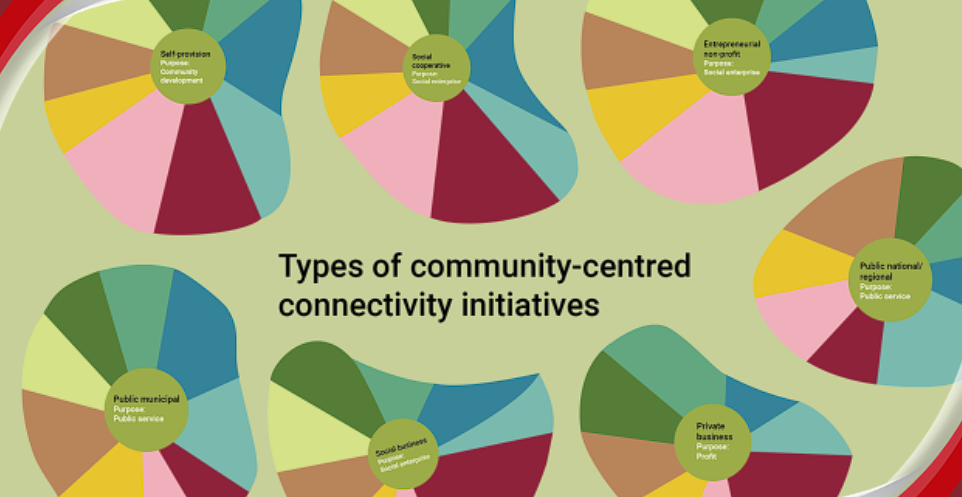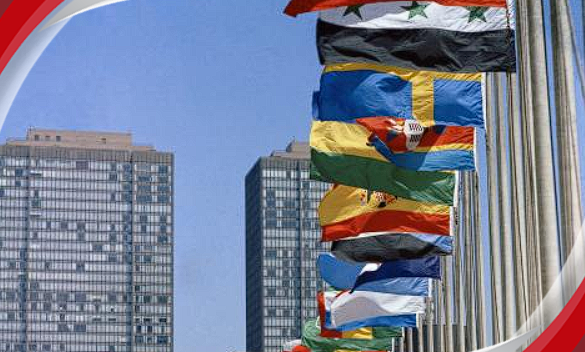Articles
CONCEPT NOTE – NATIONAL DIALOGUE, THE CIVIL SOCIETY PERPECTIVE
-
5 months ago
Proposed by The Southern African NGO Network (SANGONeT), in Association with Alliance of Non Profit Organisations Networks (ANNET), to Civil Society Organizations, towards participation in/and Inputs on the National Dialogue Proposed by President Cyril Ramaphosa.
Rationale
The quality of development outcomes that are associated with National Dialogues may create the eventual tipping points for the success or failure of a National Dialogue process,
At times, the inclusion of development issues also creates trade-offs for the process of a National Dialogue itself by increasing the number of topics on the agenda and the need for coordination between stakeholders.
Efforts must be made to include participants beyond the political power centres, particularly through the inclusion of women, youth and the disabled who traditionally fall withing the marginalized groups in Society.
1. Goal
Comprehensive and integrated participation of Civil Society in the National Dialogue of South Africa.
2. Objectives
The key objectives of this Concept Note are;
- To motivate and invite inputs on the National Dialogue by Civil Society - through the Non-Profit Sector – by means of additional topics to those suggested on this concept note;
- To lobby involvement of the Civil Society in the National Dialogue by means of commitment to the statements of this concept note; and
- To solicit support and resources towards enabling the Civil Society to actively participate in the proposed National Dialogue.
3. Brief Background of the Initiators:
Alliance of Non Profit Organisations Networks (ANNET) , represents a significant step towards unifying and strengthening the Non-Profit Sector in South Africa. ANNET, established in 2020, serves as the Apex Body for various sectors including NGOs, NPCs, CBOs, and FBOs. Bringing together a diverse range of organisations under one coordinated voice.
ANNET’s Mission
Support and develop the capacities of NPOs for more effective participation in decision-making processes, influence public and NPO policies, engage in official negotiations, deliberations, public mobilization at national, regional, and international levels.
The Southern African NGO Network (SANGONeT) was founded in 1987. Over the past 36 years SANGONeT has developed into a dynamic civil society organisation (CSO) with a history closely linked to the social and political changes experienced by South Africa during its transition to democracy. SANGONeT is still one of the very few non-governmental organisations (NGOs) in Africa involved in the field of information communication technologies (ICTs) and continues to serve civil society with a wide range of products and services.
SANGONeT’s services and interventions continue to be shaped by the challenge of strengthening the capacity of NGOs in finding long-term and sustainable solutions in response to Southern Africa’s development problems. NGOs capacity for service delivery increasingly requires that attention be given to their ability to integrate ICTs into their activities. Although many South African NGOs are already active users of ICTs, much more needs to be done to build the capacity of the sector in this regard.
Our Motto “Influencing Social Transformation Through ICT”
SANGONET owns and operates NGOPULSE, which is an information portal for NGOs, NPOs, CSIs and Development Agencies with resources to empower Development Practitioners. On this Portal, we publish the following: a Weekly eNewsletter, Job Adverts, Campaigns & Press Releases, Development resources, Informative & education articles
4. PROPOSED DISCUSSIONS, COMMITMENTS, AND PRESENTATIONS DURING THE NATIONAL DIALOGUE:
I. Civil Society’s Key Focus Areas:
i. Youth Unemployment, Moral Degeneration, and Criminality.
YOUTH UNEMPLOYMENT
South Africa, like many countries globally, grapples with the challenge of youth unemployment. This is supported by statistics indicating a 45,5% unemployment rate among young individuals (aged 15-34 years), in contrast to the national average of 32,9% in the first quarter of 2024.
However, when looking at the Labour Market Dynamics in South Africa report for 2022 , which tracks individuals over multiple quarters using annual panel data released by Statistics South Africa, youth with some form of experience far surpass adults in transitioning from unemployment or inactivity into employment between quarters, with rates of 12,3% and 7,4% respectively. Thus;
- Young people wait longer in the labour market queue, particularly for their first job and lack of experience is a major reason for youth unemployment;
- Schools offer little career guidance, leading to youth lacking information on matching skills and interests to their chosen school subjects;
- Young people lack social networks which can help leverage information-gathering on the education, labour market, job availability and job access. A large proportion of youth not in employment, education or training (NEET) live in households where no one is employed; and
- Youth are discouraged and discouragement rates are rising.
CRIME
New data released by Statistics South Africa shows that household crimes such as housebreaking, home robbery and theft of motor vehicles experienced in the twelve months preceding the interview increased compared to 2021/22. Crimes experienced by individuals have also increased, except for consumer fraud and hijacking of motor vehicles, which dropped in 2022/23.
Over the past few years, South Africa has seen rising levels of crime. The issue of crime is one that is experienced by almost all citizens, irrespective of their economic status or where they live. New data released by Statistics South Africa shows that household crimes experienced in the twelve months preceding the interview increased
MORAL DEGENERATION
Moral degeneration is a universal phenomenon which negatively affects many societies, also the South African society. The South African society, with specific reference to family life and school life is experiencing a serious moral breakdown. The media is constantly reporting this breakdown, which is evident in social ills such as a general lack of discipline and self-discipline, violence, poverty, unemployment, a high crime rate, promiscuity, school vandalism and corruption.
The literature study indicates that these moral ills have negative implications for society and for education, and that they are mainly the result of a lack of a positive value system in society as a whole.
ii. Sustainable Development Goals Integration and Implementation.
The 17 Sustainable Development Goals (SDGs) associated with the Agenda help countries to gauge the starting point from which they set out towards this new, collective vision of sustainable development set forth in the 2030 Agenda, and to analyse and craft the means of its implementation. The SDGs also represent a planning and follow-up tool for the countries at the national and local levels. With their long-term approach, they offer support for each country on its path towards sustained, inclusive and environmentally friendly development, through the formulation of public policies and budget, monitoring and evaluation instruments.
Will national policies reflect the SDGs? These uncertainties make it vital that people and civil society voices remain at the core during the entire implementation stage of the 2030 Agenda.
Human Rights, Environmental and Social international standards are the
backbone of the SDGs. The explicit reference to international commitments on Human Rights of most goals and targets of the 2030 Agenda. This is a critical element of the whole Agenda, which must be consistently and robustly defended by Civil Society and by the United Nations.
iii. Growing Demand for Services by Communities and the Role of NGOs
The most commonly listed community priorities across all provinces were: employment creation; access to basic services and adequate housing; access to educational opportunities and access to health care.
Consequences of Ineffective Service Delivery:
Poor Quality of Life: Substandard water and sanitation, unreliable electricity, and inadequate housing have a severe impact on public health, education, and overall living standards, especially for the most vulnerable populations.
The deeper causes of collapse stem in part from ideological gridlock within government, which has prevented critical decisions to be made in time. It also stems from a particular ideology that prevents society from contributing to supply societal needs.
South Africa also has a peculiar form of fiscal decentralization that has overburdened many municipalities that do not have the local capabilities to match the responsibilities.
iv. Accountability of Public Institution and the Role of Civil Society
According to political theory, a core function of civil society is to hold government accountable. Social accountability, in fact, refers to this essential role of civil society.
Social accountability is defined as an approach toward building accountability that relies on civic engagement, i.e., in which it is ordinary citizens and/or civil society organizations that participate directly or indirectly in exacting accountability.
In a public sector context, social accountability refers to a broad range of actions and mechanisms that citizens, communities, independent media and civil society organizations can use to holds public officials and public servants accountable.
v. Advocating for the Marginalized in Society.
Advocacy is a distinct principle of organizing, engagement, and equity work because advocates typically utilize power to help those with less power. If those who have influence, expertise, funding, or decision-making authority in a school system or community don’t use their power on behalf of those with less power, it can make the process of building power (organizing), sharing power (engagement), and equalizing power (equity) more difficult. The following strategies should be considered;
- Including women and marginalized groups in key professions in society.
- Using culture (theatre) to create change, by including and targeting young people.
- Creating strong unity within communities through awareness raising and alliance building.
- Analyzing opportunities in the social and economic sectors: creating new spaces for dialogue;
The marginalization of ethnic, religious and linguistic minorities has a significant detrimental impact on poverty reduction, democratic governance, environmental sustainability and conflict prevention. If these groups are left behind, inequality will increase and intercommunal tensions could rise, undermining the sustainability of Millenium Development Goals achievements.
vi. Building Networks and Partnerships to Share Resources amid Scarcity.
Organizations build service delivery partnerships in complex ways that build upon prior collaborative history and coordinate services among similar types of providers. Referral partnerships can pave the way for future information sharing relationships.
Building alliances with local businesses, non-profits, and government entities is key. Linking partners who share a commitment to sustainable resource management. These alliances can pool resources, share knowledge, and create synergies that benefit all parties involved.
The funding environment plays a key role in expanding services and agencies’ capacity to deliver coordinated, partnered services. Fiscal scarcity can drive partnerships to continue meeting basic service needs, agencies work together by sharing resources, expertise, and complementary services for their clients.
Encouraging community participation in decision-making processes can foster a sense of ownership and responsibility. Furthermore, implementing fair and equitable resource distribution systems can alleviate tensions and promote cooperation.
vii. Integrating Digital Technology in the Non-Profit Sector to Fastrack Operations and Global Connectivity
Nonprofit organizations have traditionally lagged behind for-profit businesses in terms of digital transformation . Lack of funding and other complicating factors have made it difficult for nonprofits, especially smaller ones, to make use of new technologies that have become widely used in other sectors to transform the way business is done.
Today, nonprofit leaders are more frequently adopting digital solutions to improve operations, facilitate donor and volunteer interactions, and increase the impact of their organizations. Research has shown that 74% of leaders at nonprofit organizations said they realize the importance of digital transformation efforts, but only 12% have achieved digital maturity.
Because nonprofit organizations work differently from typical businesses and are constrained by legal regulations, they have additional hurdles to clear regarding securing the support and resources necessary to keep up with the latest business technology and software.
viii. Forming Building Blocks for Civil Society
The elevation of society as a primary concept that encompasses the economy and polity has consequences in promoting the importance of social intercourse. The embeddedness argument suggests that the economy and polity are enmeshed in concrete, ongoing social relationships. This view primarily addresses economic interactions and emphasises the importance of social relationships in guiding economic exchange.
The most important analytical conclusion for the purposes at hand is that the economy, society and the government are not totally separate; instead, they interact constantly.
Civil society appears in many forms. First, as voters and members of political parties, citizens decide who governs, and as service users, they can influence the nature of services and often participate in the provision of those services. Second, organised forms of civil society are responsible for the provision of significant numbers of services for citizens. Third, the very nature of civil society influences the functioning of political and administrative institutions.
A recent examination of the production of third-sector organisations in fifteen countries found that civil society accounts for, on average, 4.5 percent of GDP, ranging from 0.8 percent in Thailand to 7.1 percent in Canada. These results are based on the incorporation of third-sector activity into 14 national accounting systems. Housing, social services, education and health care account more than half of the production of civil society in all countries.
II. Government and Corporate Sector Partnerships with The Non-Profit Sector.
In his Theory of Moral Sentiments , Adam Smith argues that duty and sympathy are part of our very nature, and that because of our innate morality, we can live collaboratively in a just and harmonious society.
CEOs benefit their businesses by partnering across sectors with public officials, nonprofit managers, and community members. When such partnerships are done well, they lead to more equitable and inclusive solutions where leaders can consider, and calculate, the impact of their decisions for society over the long run.
Proposed Dialogue Issues:
- Enabling Environment and Capacity Building Partnerships, Addressing Anti-governmental Tendencies by the Non-Profit Sector
Creating relationships between the Civil Society and Corporate Sector (Skills and Resources Share)
Nation Building as a Joint Project;
- Promotion of Patriotism
- Nurturing Active Citizenry
- Socio-Economic Awareness and Development
Improved Communication Systems and Connectivity among all sectors;
- Comprehensive Directory of Non-Profit Sector
- Civil Society Communication Platforms
Enhancing Implementation of the NDP to Capacitate and Partner with Civil Society Organizations.
“Government alone cannot provide a decent standard of living; it requires determined and measurable actions from all social actors and partners across all sectors in society. The NDP is divided into thirteen chapters that addresses the most pressing challenges facing South Africa and provides solutions to these challenges in the form of proposals and actions. The plan outlines sector specific goals and a vision for South Africa to be achieved by the year 2030.” National Planning Commission.
Partnerships between the Public Sector and Non-Profits
- Informal partnerships between nonprofit organizations (NPOs) and
- local governments represent a winning combination for affective positive social change in communities. These partnerships thrive on the development and sustainment of trust as a guiding force between NPO executives and their local government counterparts.
Promotion and Development of Social Entrepreneurship as Means of Sustainability of Non-Profit and Job Creators
The major areas in which social enterprises need support to leverage their job creation potential have been identified in some global studies, and support needs are clustered along three main categories: 1) Financial Support 2) Technical Support, and 3) Enabling Environment. An additional fourth cluster relates to improvement needs in the area of data collection and analysis of social enterprises around the globe.
CSIs Awareness and Relations to NPOs (Addressing Donor-NPO Relations)
The challenges faced by them need addressing for the sake of the NPOs, the donors and society on the whole. It was found that although the stakeholder relationship generally shows both positive and negative perceptions of the parties involved, the challenges that exist can be traced to challenges in the everyday functioning of NP Os.
Accelerating the South African’s Social Compact
Implementation of critical Interventions such as Addressing Socio-Economic Challenges
Conclusion
National Dialogues cover issues such as a lack of economic opportunities, unemployment, corruption or the unequal distribution of wealth and resources. There is thus an obvious link between the context in which National Dialogues operate and questions of human development. It is hoped that, through this concept note and proposed interactions, the South African Civil Society would be enabled to make inputs as well as recommendations towards tangible developmental progress in the next five years.
We, therefore, plead with all key stakeholders within the Non-Profit Sector to consider these proposals. And make inputs while taking decisions to fully participate in the suggested National Dialogue.
Responses and Communication must be directed to the following:
Rev. Dan Thabethe
Programme Coordinator: SANGONeT
Mr Jimmy Gotyana
President: ANNET
Related Articles Posts
Categories
Popular Post
-
 SA’s IT spend to outpace GDP growth 1 year ago
SA’s IT spend to outpace GDP growth 1 year ago -
 Vodacom, Netstar launch free in-taxi Wi-... 1 year ago
Vodacom, Netstar launch free in-taxi Wi-... 1 year ago -
 South Africa under pressure to fill cybe... 1 year ago
South Africa under pressure to fill cybe... 1 year ago -
 Organisations with a strong employee val... 1 year ago
Organisations with a strong employee val... 1 year ago -
 Joint policy-in-action event highlights... 1 year ago
Joint policy-in-action event highlights... 1 year ago -
 Boost your digital transformation journe... 1 year ago
Boost your digital transformation journe... 1 year ago








